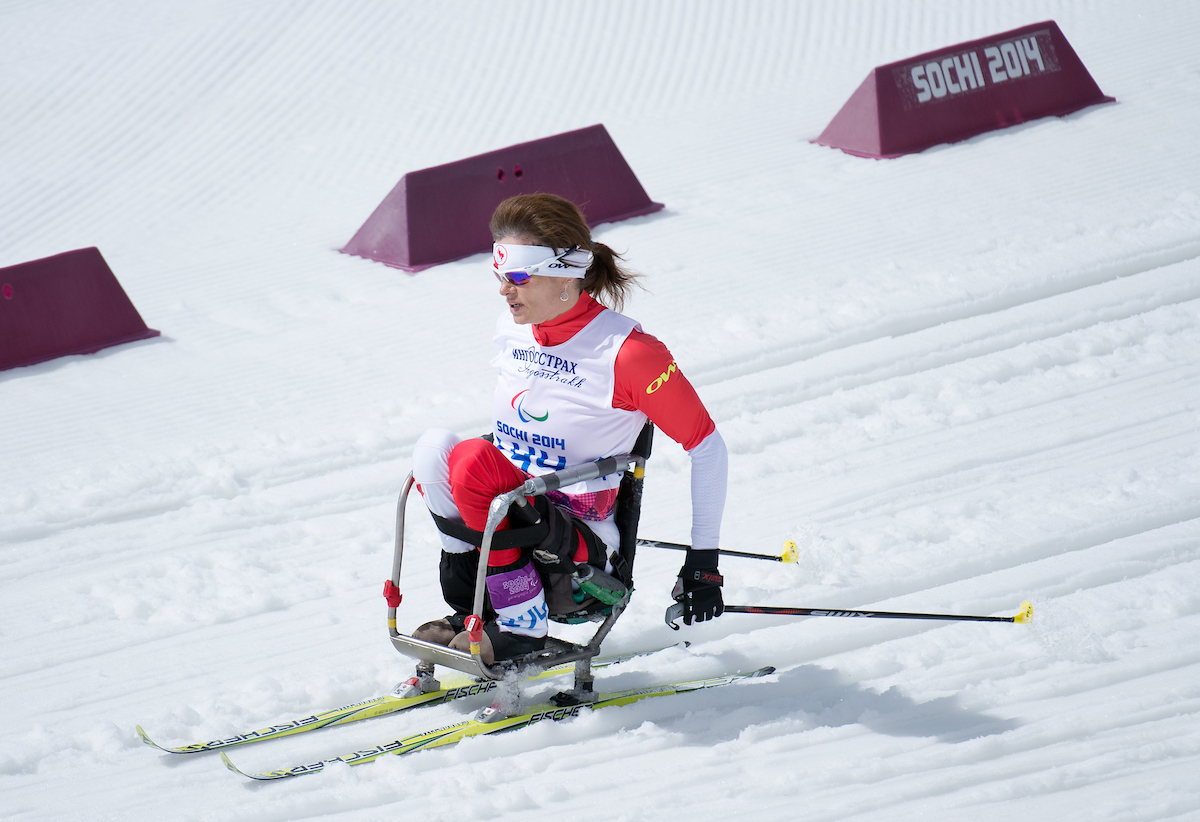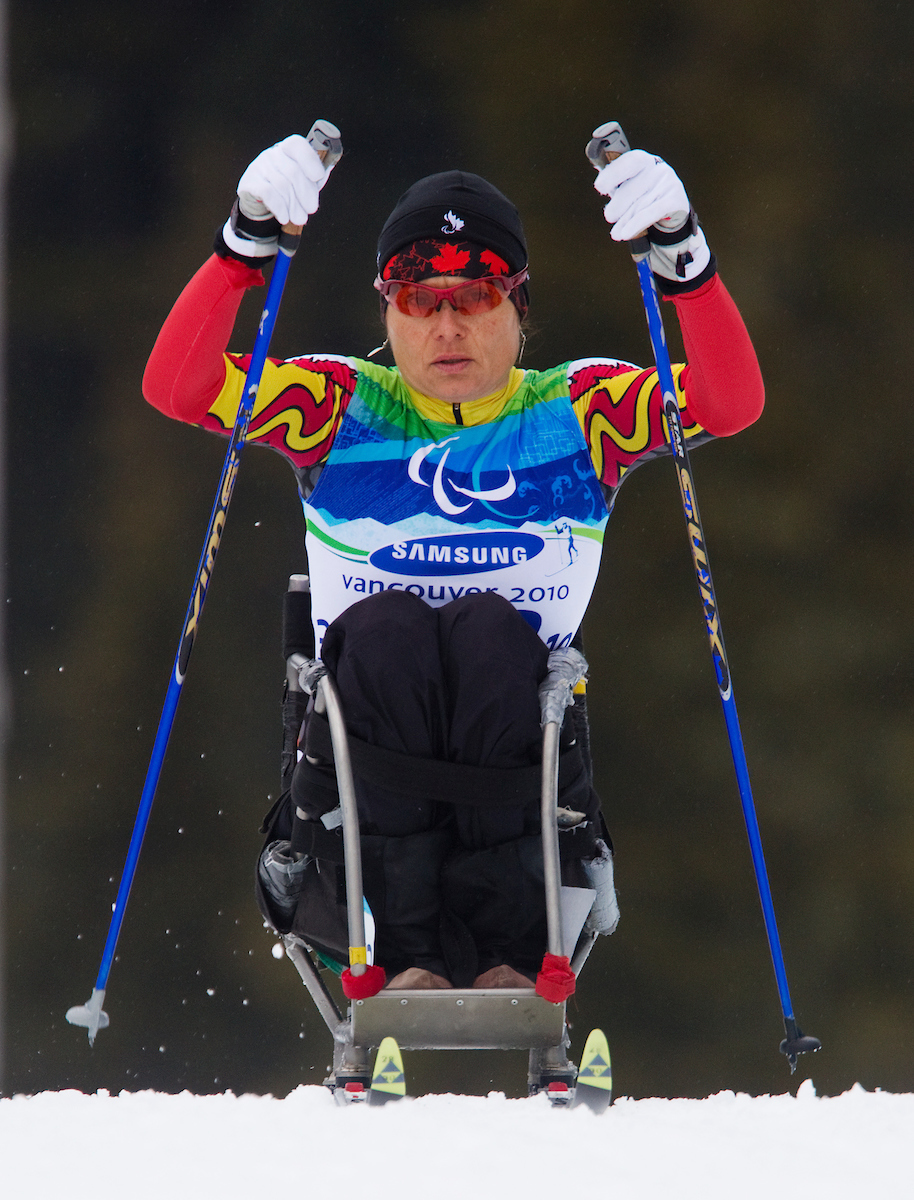

Birthdate
January 17, 1962
Hometown
Prince Albert, SK
Residence
Prince Albert, SK
Sport
Para nordic skiing
Para athletics
Experience
Vancouver 2010
Torino 2006
Colette Bourgonje competed in seven Winter Paralympic Games (Albertville, Lillehammer, Nagano, Salt Lake City, Torino, Vancouver, Sochi) and three Summer Paralympic Games (Barcelona, Atlanta, Sydney). In April 2014, Bourgonje announced her retirement from competition after a brilliant career which concluded a month earlier at the Paralympic Games in Sochi.
In the Summer Games, as a wheelchair racer, she won two bronze medals in Barcelona and Atlanta. In sit-skiing, she was a double Paralympic medallist in 1998, 2006 and 2010.
At the Paralympic Winter Games in Vancouver 2010, Bourgonje won silver and bronze medals in cross country skiing. She put her name in the history books as the first-ever Canadian to win a Paralympic medal on home snow after she claimed the silver in the women’s 10-kilometre sit-ski race. At the Closing Ceremony for Vancouver 2010, she received the prestigious Whang Youn Dai Achievement Award, which recognizes individuals who conquer adversities through the pursuit of excellence in sport.
Bourgonje competed nationally in cross country skiing before she was struck by a car in 1980 which left her a paraplegic. After a transition period, she pursued her sports career and education and was the first graduate of the University of Saskatchewan’s physical education department who used a wheelchair. She acquired a teaching certificate and works as an elementary school teacher.
She has been nominated four times for Saskatchewan’s female athlete of the year and won in 2010. Bourgonje was inducted into the Canadian Disability Hall of Fame in 2010 and the Saskatoon Hall of Fame in 1998. In 1996 she was named Saskatoon Athlete of the Year, the Canadian Association of Disabled Skiing’s [CADS] Nordic Athlete of the Year and was also awarded the Breakthrough Award by the Canadian Association for Advancement of Women in Sport and Physical Activity [CAAWS].
Off the race course, Bourgonje is an advocate of active and an ambassador of In Motion, Saskatchewan’s movement to increase physical activity. “I would tell someone if they want to get the most out of life and really start living, they should try doing something physical – even if it is just a 15 minute walk once a day. Your mind, body and spirit are all enhanced when you exercise.”
CAREER HIGHLIGHTS
Double medallist 1998, 2006 and 2010 Paralympic Winter Games… Double medallist at 1992 and 1996 Summer Paralympic Games… 2011 World Champion sit-skiing… 1998 and 2005 World Cup sit-skiing champion…
HISTORICAL CONTEXT
Sochi 2014 will be her tenth Paralympic Games…First Canadian to win a Paralympic medal at a home Games…Only Canadian to compete at six Paralympic Winter Games so far…Sochi will make seven.
PERSONAL
GETTING INTO THE SPORT: grew up in Porcupine Plain in Northeast Saskatchewan…Her first time ever in a sit-ski was in one her brother made for her on a family holiday. She tried Para-nordic skiing for the first time in 1991… She was introduced to the sport by para-Nordic skier Joe Harrison.
ODDS AND ENDS: has a street named after her in Saskatoon (Bourgonje Crescent)… She has worked on a Canadian project called SASKI Skiing for Disabled that recruits people with impairments and teaches them the basics of skiing.
3
7
"*" indicates required fields